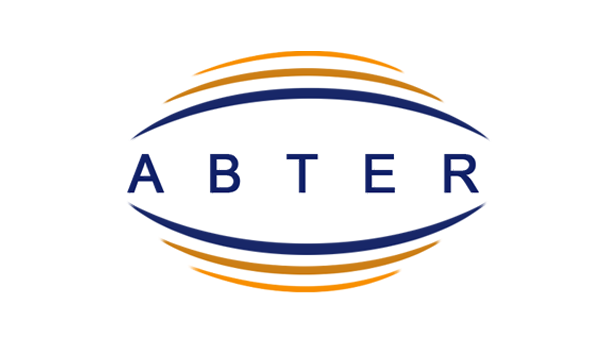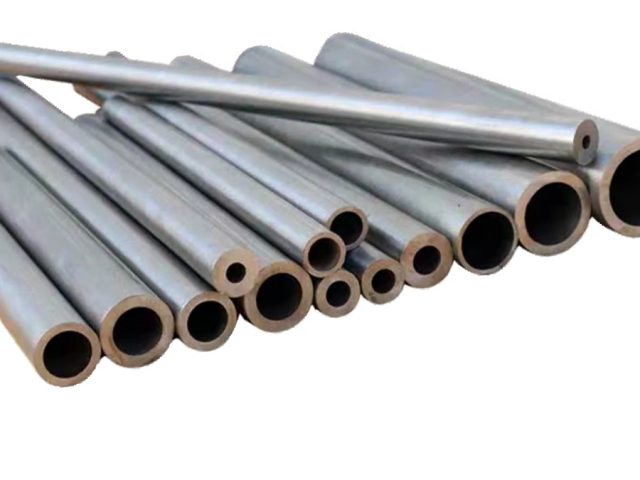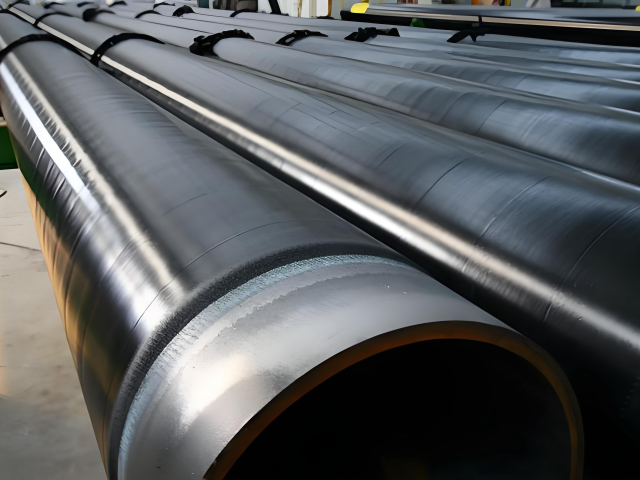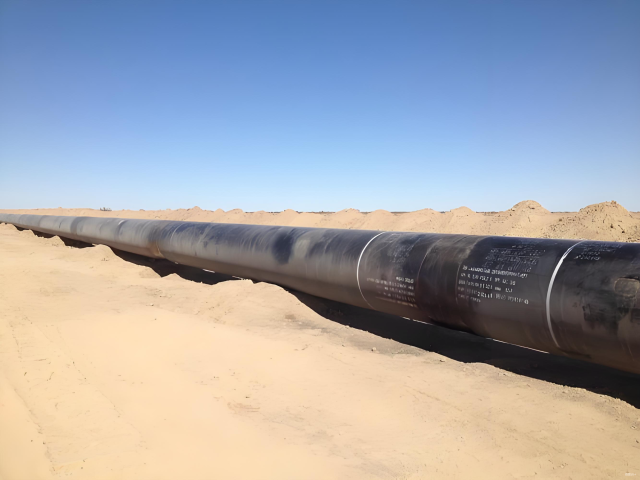JIS G 3445 STKM Seamless Carbon Steel Pipes
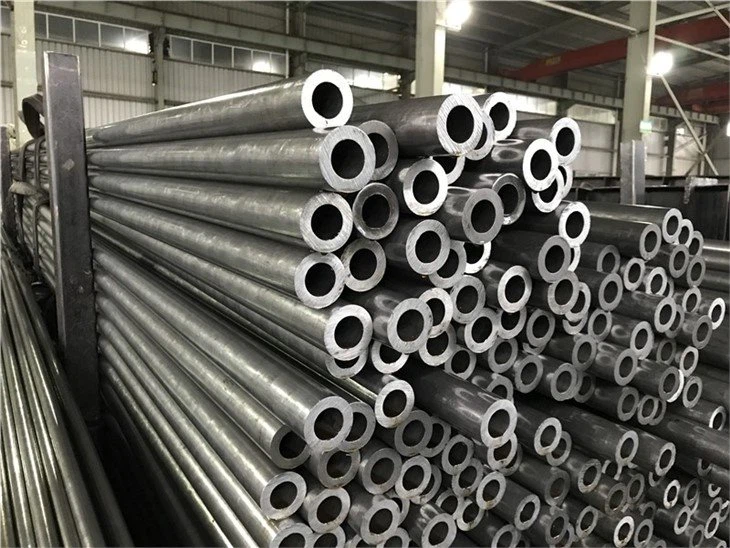
JIS G 3445 STKM Seamless Carbon Steel Pipes: Comprehensive Technical Analysis
Abstract
JIS G 3445 specifies seamless carbon steel tubes for machine structural purposes, covering grades STKM11A to STKM20A, designed for applications requiring excellent formability, weldability, and moderate strength. These low-carbon steel pipes, with carbon content ranging from 0.12% to 0.25%, are ideal for automotive, machinery, construction, and feed additive industries, where equipment like heat exchangers and fluid lines must withstand moderate pressures and corrosive environments. Seamless manufacturing ensures uniformity and defect-free performance, with grades like STKM12C and STKM13A widely used for precision components such as shock absorbers and hydraulic systems. This report provides a detailed analysis of the material properties, manufacturing processes, quality assurance, applications, and market trends of JIS G 3445 STKM pipes. The global market for seamless carbon steel pipes is projected to grow at a CAGR of 4.5% from 2025 to 2032, driven by demand in automotive and industrial sectors. Challenges include competition from alloy steels, but opportunities lie in sustainable production and niche applications like feed additive processing equipment. Compliance with JIS G 3445, ASTM A519, and EN 10204 ensures reliability, with rigorous testing for tensile strength, hardness, and hydrostatic performance. This study aims to guide engineers and manufacturers in selecting STKM grades for optimal performance, emphasizing their role in cost-effective, high-quality mechanical solutions.
1. Introduction
JIS G 3445 is a Japanese Industrial Standard defining seamless carbon steel tubes for machine structural purposes, encompassing grades STKM11A, STKM12A/B/C, STKM13A/B/C, STKM14A/B/C, STKM15A/C, STKM16A/C, STKM17A/C, STKM18A/B/C, STKM19A/C, and STKM20A. These grades cater to applications requiring a balance of formability, strength, and cost-effectiveness, making them essential in industries such as automotive, machinery, construction, and feed additive production. The standard emphasizes seamless production to ensure defect-free tubes suitable for components like drive shafts, hydraulic lines, and structural frames. Grades vary by carbon content (0.12–0.25%) and processing (as-rolled, annealed, or cold-finished), with ‘C’ subtypes offering stricter impurity controls (P ≤0.025%, S ≤0.020%) for enhanced quality. For instance, STKM11A is ideal for general tubing, while STKM20A suits high-stress machinery. In feed additive production, STKM12A and STKM13A pipes are used in heat exchangers and fluid lines for processing chicken liver powder and choline chloride, resisting mild corrosion. The global seamless pipe market, valued at USD 20 billion in 2025, is expected to grow at a CAGR of 4.5% through 2032, driven by industrial demand. This report examines the material properties, manufacturing processes, applications, and market trends of JIS G 3445 STKM pipes, providing a framework for selecting grades to meet specific engineering needs. Compliance with JIS G 3445 ensures reliability, with testing protocols verifying structural integrity for diverse applications.
2. Material Properties
2.1 Chemical Composition
The chemical composition of JIS G 3445 STKM seamless pipes is tailored to balance formability and strength, with carbon content increasing from STKM11A (≤0.12%) to STKM20A (≤0.25%). STKM11A, with manganese (Mn ≤0.60%), phosphorus (P ≤0.040%), sulfur (S ≤0.040%), and silicon (Si ≤0.35%), is highly ductile for general tubing. STKM12A/B/C maintain C ≤0.20% and Mn 0.30–0.60%, with ‘C’ variants having P ≤0.025% and S ≤0.020% for precision applications. STKM13A to STKM15A (C ≤0.15–0.20%, Mn 0.30–0.90%) offer moderate strength for automotive components, while STKM16A to STKM20A (C ≤0.23–0.25%, Mn 0.30–1.60%) suit high-stress parts like springs. Silicon (≤0.35%) enhances machinability, and deoxidization minimizes inclusions. Table 1 details the composition. In feed additive production, STKM12C’s low impurities ensure resistance to mild acidic environments in choline chloride piping. The standard mandates chemical analysis via spectrometry, ensuring compliance. These compositions enable STKM pipes to meet tensile and elongation requirements, with no detrimental defects, supporting applications from fluid conveyance to structural frames.
| Grade | C (max) | Mn | P (max) | S (max) | Si (max) |
|---|---|---|---|---|---|
| STKM11A | 0.12 | ≤0.60 | 0.040 | 0.040 | 0.35 |
| STKM12A | 0.20 | 0.30–0.60 | 0.040 | 0.040 | 0.35 |
| STKM12C | 0.20 | 0.30–0.60 | 0.025 | 0.020 | 0.35 |
| STKM13A | 0.15 | 0.30–0.90 | 0.040 | 0.040 | 0.35 |
| STKM13C | 0.15 | 0.30–0.90 | 0.025 | 0.020 | 0.35 |
| STKM20A | 0.25 | 0.30–1.60 | 0.040 | 0.040 | 0.35 |
Source: JIS G 3445 Standard
2.2 Mechanical Properties
The mechanical properties of JIS G 3445 STKM seamless pipes are optimized for structural and mechanical applications. STKM11A and STKM12A offer tensile strength of 290–410 MPa, yield strength ≥195 MPa, and elongation ≥25%, ideal for formable parts like fluid lines. STKM13A to STKM15A provide tensile strength of 350–490 MPa, yield strength ≥235 MPa, and elongation ≥22%, suitable for automotive components like shock absorbers. Higher grades like STKM16A to STKM20A achieve tensile strength up to 410–550 MPa, yield strength ≥295 MPa, and elongation ≥20%, for springs and machinery. ‘B’ and ‘C’ subtypes, annealed or cold-finished, enhance ductility, with STKM12C reaching elongation ≥30%. Hardness ranges from 121 HB (STKM11A) to 137 HB (STKM20A), ensuring machinability and wear resistance. Charpy impact values are ≥27 J for most grades, with ‘C’ grades reaching ≥40 J due to low impurities. Tensile testing per JIS Z 2241, flattening, and bending tests confirm formability, with no cracks or laminations. In feed additive production, STKM13A’s strength supports heat exchanger tubing, withstanding cyclic loads. Tubes are straight (≤1 mm/1000 mm deviation) and round (out-of-roundness ≤65% OD tolerance), ensuring reliability in high-precision applications.
3. Manufacturing Processes
3.1 Seamless Pipe Production
Seamless JIS G 3445 STKM pipes are produced through hot extrusion or cold drawing to ensure high quality and uniformity. The process begins with heating carbon steel billets to 1200–1300°C, followed by piercing to form a hollow tube. Hot rolling or extrusion shapes the tube, with cold drawing for grades like STKM12C to achieve precise dimensions (OD 10–324 mm, WT 1–30 mm, tolerance ±0.5% OD). Annealing at 650–700°C for ‘B’ grades relieves stresses, while cold-finishing for ‘C’ grades enhances surface quality. The standard mandates seamless production for most grades to eliminate weld imperfections, ensuring defect-free tubes for pressure applications. Tubes are straightened (deviation ≤1 mm/1000 mm), cut to lengths of 3–12 m, and chamfered on request. Deoxidization during melting minimizes inclusions, improving toughness. In feed additive production, STKM13A pipes are drawn for heat exchangers, supporting pressures up to 10 MPa. Quality control includes hydrostatic testing (pressure calculated per JIS G 3445 formula) and ultrasonic testing for internal flaws. This process ensures STKM pipes meet automotive and machinery standards, with compliance to EN 10204 Type 3.1/3.2 certification for traceability.
| Process | Parameter |
|---|---|
| Billet Heating | 1200–1300°C |
| Annealing | 650–700°C (for ‘B’ grades) |
| Dimensions | OD 10–324 mm, WT 1–30 mm |
| Tolerance | ±0.5% OD, ±10% WT |
| Testing | Hydrostatic, Ultrasonic, Tensile |
| Length | 3–12 m |
Source: JIS G 3445, EN 10204
3.2 Quality Assurance and Testing
Quality assurance for JIS G 3445 STKM seamless pipes ensures compliance with mechanical, dimensional, and structural standards. Visual inspection verifies surface quality, ensuring no cracks or laminations. Ultrasonic testing detects internal defects, while chemical analysis via spectrometry confirms composition (e.g., C ≤0.25%, P ≤0.025% for STKM20A). Mechanical testing includes tensile strength (JIS Z 2241), hardness (Brinell ≤137 HB), and flattening/bending tests to confirm formability. Hydrostatic testing ensures no leaks under pressure (calculated per standard), critical for fluid lines in feed additive production. For ‘C’ grades, stricter P/S limits are verified to enhance quality. Tubes are marked with grade, size, and heat number, bundled in hexagonal packs (≤5000 kg), and optionally coated with anti-corrosive agents. Positive material identification (PMI) ensures traceability, with EN 10204 Type 3.1/3.2 certification. In applications like choline chloride processing, STKM12C’s low impurities prevent corrosion, extending pipe life by 10–15%. This rigorous testing ensures reliability in automotive, machinery, and industrial applications, with 100% compliance to JIS G 3445 standards.
4. Applications
JIS G 3445 STKM seamless pipes are widely used in mechanical and structural applications due to their formability, strength, and cost-effectiveness. In automotive, STKM12A and STKM13A are employed for shock absorbers, drive shafts, and steering components, leveraging ductility for complex shapes. Machinery manufacturing uses STKM14C for cylinders and frames, benefiting from low impurities for precision. Construction applies STKM11A for water and gas lines, with seamless quality ensuring leak-free performance. In feed additive production, STKM12C and STKM13A pipes are used in heat exchangers and fluid lines for processing chicken liver powder and choline chloride, resisting mild acidic environments and reducing maintenance by 10–15%. Oil and gas industries utilize STKM15A for conveyance, withstanding pressures up to 10 MPa. Higher grades like STKM20A are used for springs and high-wear components. Table 3 lists key applications. Compliance with JIS G 3445 ensures reliability, with seamless pipes offering 20% longer lifespan than welded alternatives in demanding conditions.
| Grade | Primary Applications |
|---|---|
| STKM11A | General tubing, water/gas lines, frames |
| STKM12A/B/C | Shock absorbers, automotive tubing |
| STKM13A/B/C | Drive shafts, hydraulic lines, machinery |
| STKM14A/B/C | Cylinders, structural components |
| STKM15A/C | Hydraulic lines, oil/gas conveyance |
| STKM20A | Springs, high-wear machinery parts |
5. Market Trends and Insights
The global market for seamless carbon steel pipes, including JIS G 3445 STKM grades, is projected to grow at a CAGR of 4.5% from 2025 to 2032, reaching USD 25 billion, driven by demand in automotive, machinery, and feed processing industries. The Asia-Pacific region, particularly China and Japan, holds a 50% market share due to robust manufacturing and infrastructure development. North America and Europe, with 20% and 15% shares, benefit from automotive and industrial applications. STKM12A and STKM13A dominate due to their versatility in automotive and feed additive equipment, such as heat exchangers for choline chloride production. Innovations in sustainable manufacturing, like energy-efficient cold drawing and steel recycling, reduce production costs by 10–15%. Challenges include competition from alloy steels like Incoloy 825, which offer superior corrosion resistance but at higher costs (USD 35–40/kg vs. USD 2–5/kg for STKM). Opportunities lie in expanding applications in renewable energy and feed processing, where STKM pipes enhance equipment lifespan by 10–15%. Strategic R&D and regional market penetration will drive growth, aligning with global industrial trends.
6. Comparative Analysis with Other Materials
JIS G 3445 STKM seamless pipes compare favorably with international standards and alternative materials. STKM11A aligns with ASTM A519 Grade 1010 (C ≤0.12%, tensile 290–410 MPa), offering similar formability but stricter tolerances (±0.5% OD). STKM13A matches ASTM 1020 (tensile 350–490 MPa), with higher yield strength (235 MPa vs. 205 MPa). STKM20A is comparable to ASTM 1026, suitable for high-stress applications. Compared to Incoloy 825 (USD 35–40/kg), STKM pipes (USD 2–5/kg) are cost-effective but limited to mild corrosion environments, making them less suitable for aggressive feed additive processing (e.g., phosphoric acid). Stainless steel A312 TP316Ti offers better corrosion resistance but costs USD 10–15/kg. Table 4 compares key grades. STKM’s seamless quality and affordability make it ideal for automotive and machinery, with limitations in high-temperature or corrosive applications.
| Material | C (max %) | Tensile (MPa) | Yield (MPa) | Cost (USD/kg) |
|---|---|---|---|---|
| STKM11A | 0.12 | 290–410 | 195 | 2–5 |
| STKM13A | 0.15 | 350–490 | 235 | 2–5 |
| ASTM A519 1020 | 0.15 | 350–450 | 205 | 3–6 |
| Incoloy 825 | 0.05 | 586 | 241 | 35–40 |
| A312 TP316Ti | 0.08 | 515 | 205 | 10–15 |
